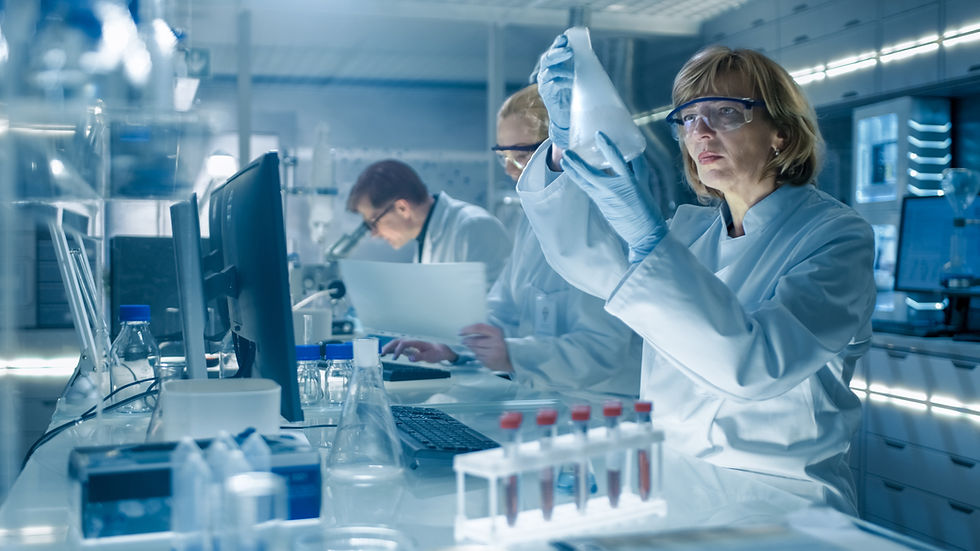How Chemical Additives Like Rid-X Can Wreak Havoc on Your Septic System
- Beth Simmons

- Apr 7, 2025
- 3 min read
Maintaining a functional septic system is essential for homeowners, especially those in rural areas without access to municipal sewer systems. Many people turn to chemical additives like Rid-X, believing they will enhance the performance of their septic tanks. However, these products can often cause more harm than good. This post will unpack the risks associated with chemical additives and provide valuable insights for ensuring the long-term health of your septic system.

Understanding Septic Systems
To understand the dangers of chemical additives, it's important to know how septic systems work. A typical septic system consists of a septic tank and a drain field. Wastewater travels to the tank, where solids settle to the bottom, and naturally occurring bacteria begin the process of breaking down the waste.
These bacteria play a critical role in facilitating the decomposition of organic material. The cleaner water then drains out into the drain field and subsequently the ground, where the soil further filters it before it returns to the water table deep in the earth. This natural process is vital for maintaining a balanced ecosystem within the septic system and surrounding environment.
The Role of Chemical Additives
Chemical additives, like Rid-X, are often marketed as solutions to improve septic system efficiency. They contain enzymes and additional bacteria that claim to speed up waste breakdown. However, homeowners need to recognize the potential downsides of relying on these products.
Disruption of Microbial Balance
One of the most serious issues with chemical additives is their ability to disrupt the microbial balance in the septic system. The natural bacteria in a septic tank are indispensable for effective waste breakdown. Introducing chemical additives can introduce foreign bacteria or enzymes that disrupt the native microbial population.
For instance, a recent study showed that septic systems that used chemical additives had up to 50% lower microbial diversity. This decline in naturally-occuring microbes can ultimately lead to clogs and backups, resulting in expensive repairs or even complete system replacement.
Harmful Chemical Composition
Beyond affecting bacteria, many chemical additives contain substances that are damaging to the septic environment. Ingredients such as sodium hydroxide and phosphates can have harmful effects.
Research indicates that phosphates can leach into groundwater, leading to algae blooms in nearby bodies of water, which can cause oxygen depletion and harm aquatic life. The detrimental impact on soil microorganisms that help filter wastewater can endanger the surrounding flora and fauna, leading to long-term ecological damage.
False Sense of Security
Using products like Rid-X can create a misleading sense of security. Homeowners may think that these additives can substitute for regular maintenance, like pumping and inspections.
Statistics reveal that neglecting proper maintenance can increase the risk of system failure by over 70%. Relying strictly on additives, without proper care, can lead to significant issues. Homeowners should prioritize routine pumping and adopt mindful practices, such as reducing water usage during storms and being careful about what goes down the drains.
Cost Implications of Chemical Additives
While chemical additives might appear to be a cost-effective quick fix, they can lead to considerable long-term expenses. A faulty septic system can incur repair costs ranging from $2,000 to $15,000, depending on the severity of the issue.
Moreover, failing to maintain your system can result in legal liabilities if contaminants from your septic system infiltrate local water supplies. Homeowners often find that investing in regular maintenance and proper care is far more economical in the long run.
Alternatives to Chemical Additives
Instead of chemical additives, consider several effective alternatives for keeping your septic system healthy. Regular pumping, which should occur every 3-5 years, is crucial for removing sludge and solids.
You can also opt for environmentally friendly products that won't disrupt the microbial balance. Natural solutions, such as composting worms or specific bacteria cultures, can boost your septic system without the detrimental effects of chemical options.
Educating the Community
It is essential to raise awareness about the dangers associated with chemical additives for the ecological health of local environments. Community outreach programs can help homeowners understand these risks and promote sustainable septic system practices.
Providing education on environmental-friendly practices can significantly reduce reliance on harmful chemicals while improving community health. For example, workshops could show homeowners how to maintain their systems and the benefits of adopting a more eco-conscious approach.
Taking Active Steps for Your Septic Health
Homeowners must take an active role in the health of their septic systems. While chemical additives like Rid-X may seem like convenient solutions, they often introduce more problems than they solve. Disruption of microbial balance, harmful chemical compositions, and false security can severely impair septic function.
By focusing on regular maintenance and natural alternatives, homeowners can enjoy a more efficient and sustainable septic system. Understanding the hidden dangers of chemical additives empowers you to make informed choices for your home and community, creating a healthier ecosystem for everyone.





Comments